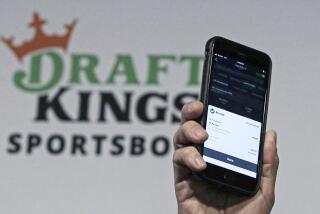Merrill Lynch, Kidder Peabody Curb Program Trades
- Share via
NEW YORK — Two more Wall Street brokerages said Monday that they would limit their program trading, joining other major firms that have backed away from the strategy under pressure after the recent stock market volatility.
Merrill Lynch & Co. said that effective immediately it would not execute index arbitrage for its clients. Kidder, Peabody & Co. said it had ceased index arbitrage for its own accounts but would continue using the strategy for its customers.
The announcements followed similar moves by large brokerages last week. On Friday, Morgan Stanley Group Inc. and Bear, Stearns & Co., two of the biggest users of program trading, said they would stop using index arbitrage to trade for their own accounts; Paine Webber Group Inc. stopped using all forms of the strategy.
Index arbitrage is a computerized trading strategy aimed at profiting on brief and minute differences between prices of stocks and stock-index futures, which are traded on Chicago futures exchanges.
The trading tactic, in which millions of shares can be bought or sold in seconds, often is geared to make short-term profits during excitable markets. Critics say it can accentuate market movements, leading to sharp price swings such as the 190-point drop in the Dow Jones industrial average Oct. 13.
Merrill Lynch halted index arbitrage for its own account nearly two years ago after the Black Monday stock market crash, which critics said was worsened by program trading.
In Monday’s statement, Merrill Chairman William A. Schreyer and President Daniel P. Tully said “the causes of excess market volatility are far more complex than any particular computer trading strategy.”
But they conceded that “index arbitrage has been clearly identified in the investing public’s mind as a contributing factor to excess market volatility.”
Merrill would stop executing such trades until the firm is “satisfied that effective controls are in place,” the statement read.
Kidder was the third most active index arbitrage firm during September, trading 34.6-million shares with the strategy during the month, while Merrill Lynch ranked seventh with 12.8 million shares, according to the New York Stock Exchange. Morgan Stanley led all firms with volume of 53.1 million shares.
According to New York Stock Exchange figures, program trading of all kinds accounted for a record 13.8% of average daily volume in September.
More to Read
Inside the business of entertainment
The Wide Shot brings you news, analysis and insights on everything from streaming wars to production — and what it all means for the future.
You may occasionally receive promotional content from the Los Angeles Times.










